
Use code 12DAYS for free shipping on all 12 days of Christmas promotional products
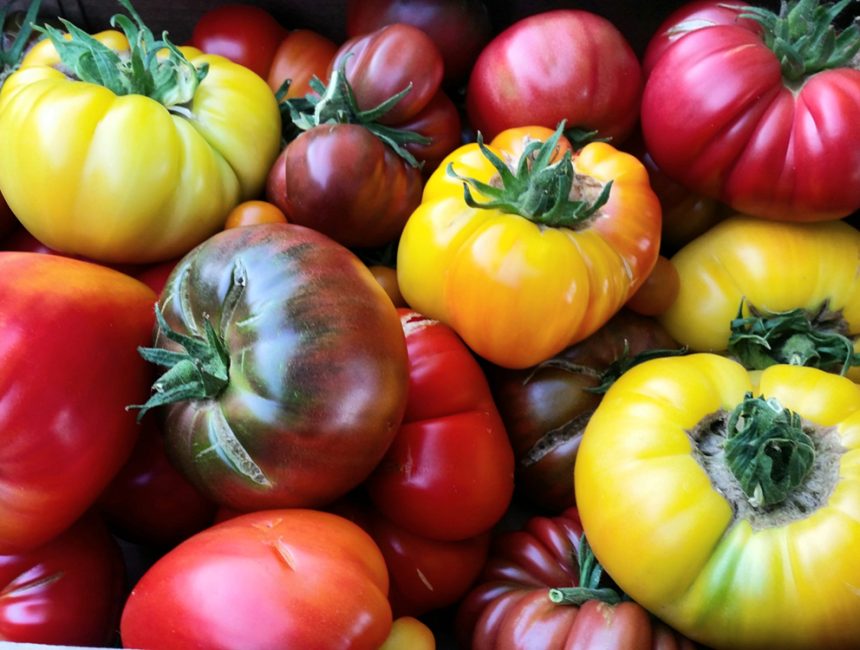
There’s a Tomato Revolution going on! But what’s it all about? To paraphrase Robespierre (a daily occurrence at AutoPot) this revolution is in the name of Tomato Liberty, Tomato Equality, Tomato Fraternity! All joking aside, Tomato Revolution seeks to free the tomato from the shackles of flavourlessness, to elevate the growing of great tomatoes to an inalienable right, and to band Tomato Revolutionaries together through a shared belief in the glory of the love apple. We hopped atop the barricades with their founder Lance Turner down Wiltshire-way for an eye-opening insight into Tomato Revolution’s ideas and methods.
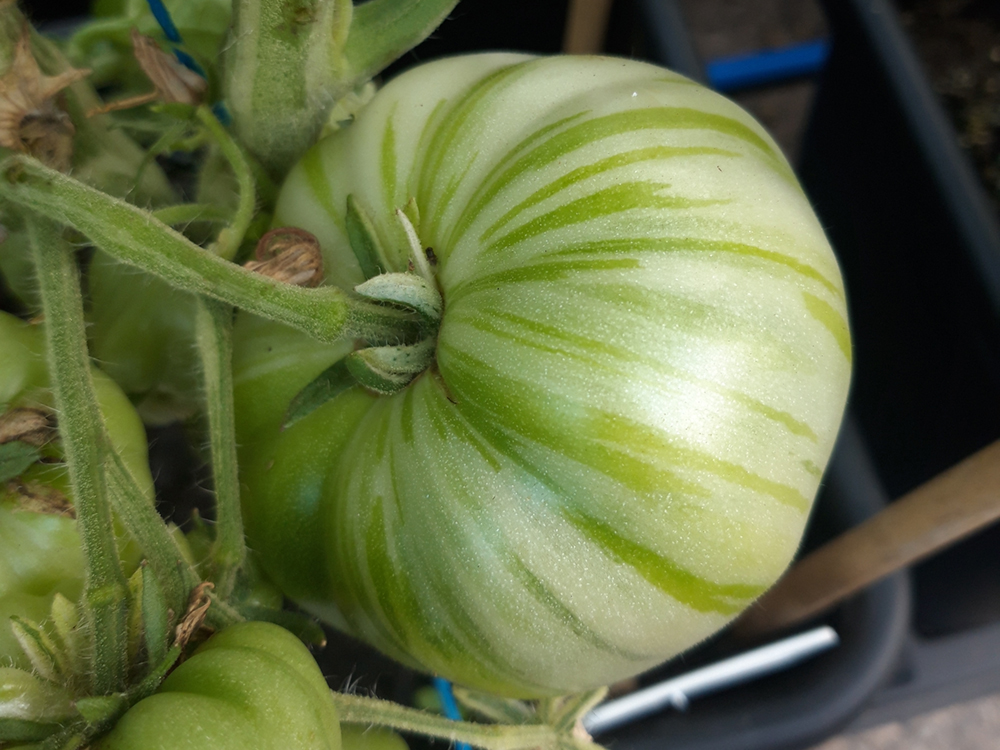
It’s been 333 years since the last revolutionary action in Wiltshire – on that occasion it involved 19,000 troops. On this occasion it involves one Lance Turner, but sometimes that’s all you need. As the driving force behind Tomato Revolution, Lance began by talking us through his motivation and the problems that beset tomato cultivation at present.
Experiencing a truly characterful tomato, the kind “that hits your palate and rings with balance but also a complex intensity that stays there for a few minutes,” is described by Lance as a kind of revelation. Yet, despite clear customer demand, commercially available tomatoes often pale in comparison, and with good reason. As Lance explains, “great tomatoes cannot be replicated commercially without a serious investment in growing time.” As it stands “many such varieties do not produce enough yield or consistency for a commercial grower to entertain and this is a factor with many heirloom varieties being lost or forgotten.” So how should we go about liberating tomatoes from insipidity?
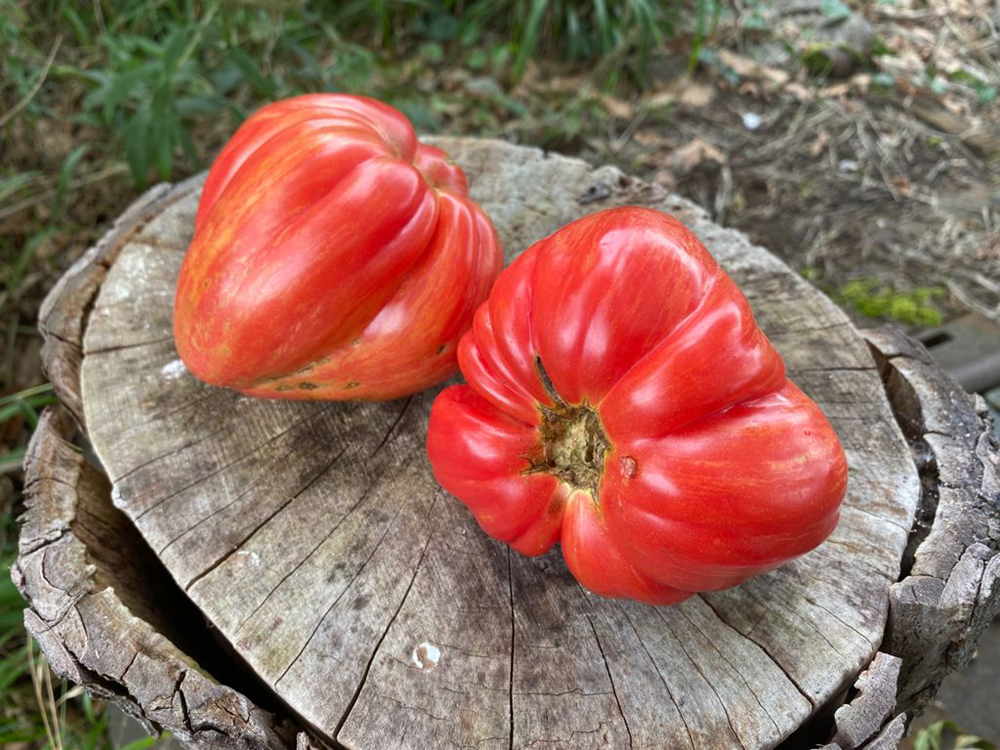
It’d be all too easy to waste time bemoaning supermarkets and the like for producing bland-but-profitable fruit. But there are more productive ways forward in actually changing the status quo. By preserving varieties, selectively breeding, and innovating with their growing techniques Tomato Revolution are actively demonstrating a different vision for the future. It all begins with the choice of varieties.
“In terms of criteria for growing, Tomato Revolution primarily grow tomatoes on their taste profile. Whilst attractive looking shapes, colours and sizes are fun to grow, flavour is the key driver. A balance of acidity and sweetness makes for a great tomato.” This allows them to offer something different to the mainstay selection available on the market. For the uninitiated Lance described the range of flavours that tomatoes can give when grown to their best.
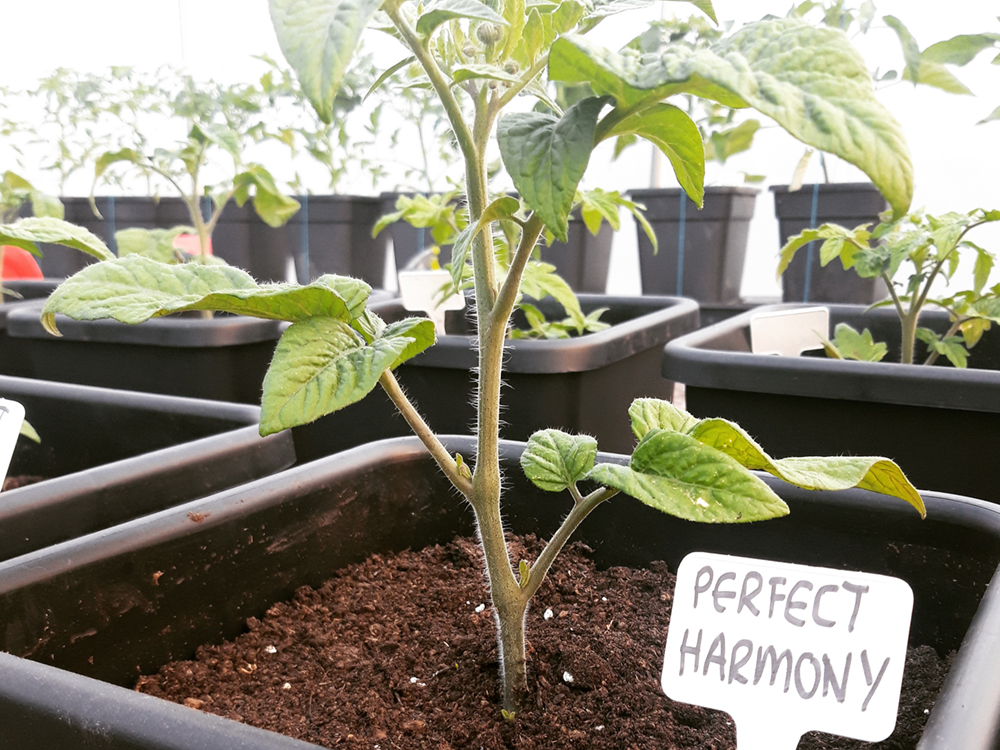
“Tomato flavour profiles have five basic categories. Mild (supermarket and some Bi-coloured varieties), Tart (yellow varieties and some green like Green Zebra), Sweet (cherry and black top), Balanced (Tomato Revolution’s target area with a zing of acidity and sweetness on the finish), and the ultimate: Intense” (of which Lance has experienced only a few).
For really diverse stuff, and the ultimate investment in time, Lance looks to crosses. “We often cross two excellent flavoured tomatoes together, this does not mean the result will be an amazing outcome but that is the target. It’s a bit like breeding two fast horses hoping you will get a very fast horse.” But before you can get your leg over you need to stabilise your seed.
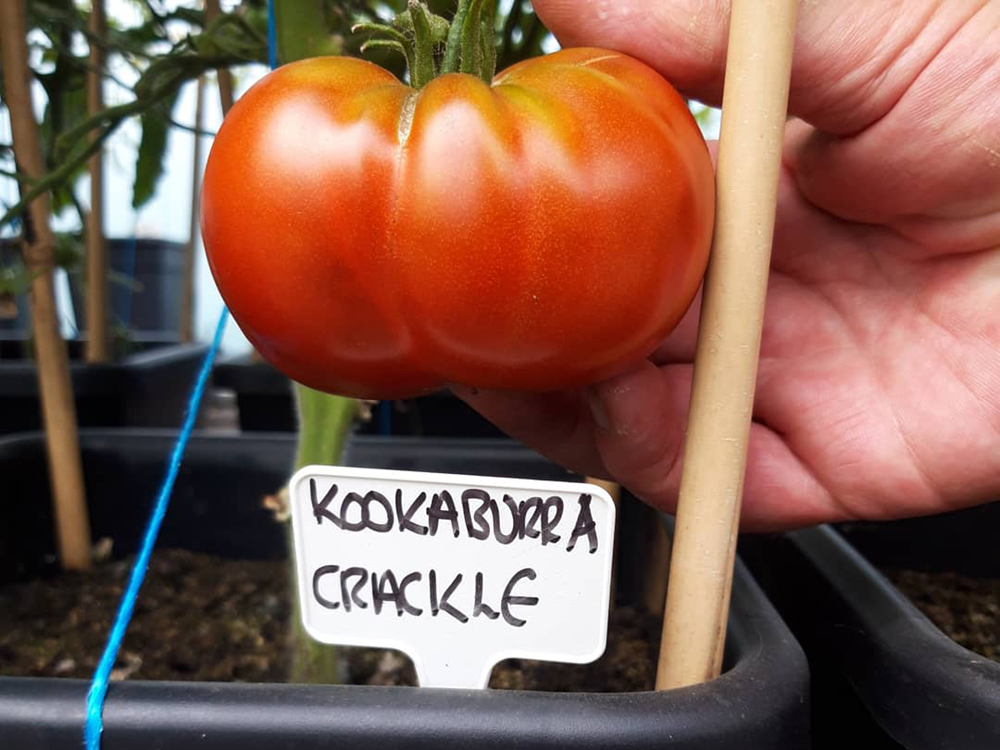
The need to stabilise brings us back to the investment in time. “It can take a number of years to stabilise a tomato variety. Only when you have consistent colour, shape and size of the fruit for at least 2 years can you consider releasing it. The initial work takes minimum 3 years leading up to that, so 5 years is minimum.”
“Crossing normally starts with pollen taken from a regular leaf variety and crossed to a potato leaf variety. Regular leaf varieties are dominant over potato leaf varieties so we grow out some crossed seed in the same year and if the seedlings show regular leaves we know the cross has taken. In the following year we only need to save seed from one tomato, the year after that is when we get to something stable to work with. The seeds from these fruits are the backbone of potential stabilisation. Years 3 and 4 will determine how stable your cross is.” The eventual, crossed crop can be advantaged in terms of flavour but also growth characteristics, as Lance found when participating in The Dwarf Tomato Project.

“Co-founded by Craig LeHoullier and Patrina Nuske Small in 2003, the project took an uninspiring variety in the 1915 Isbell seed catalogue called New Big Dwarf and proceeded to cross it with some intensely flavoured Heirloom Indeterminates.” The aim here was to make use of the dwarf gene and create some exciting new varieties on shorter plants which could be grown in pots. “Dwarfs often throw three or four main stems and this is perfect for the AutoPot easy2grow modules we use at Tomato Revolution. We put a 4ft cane in each corner of a 15 litre / 3.9 gal pot and run a fruiting stem up each cane.” With years of development at stake where crosses are concerned and the potential for quirks in crop plant requirements a reliable, responsive watering system has been essential — as Lance explains.
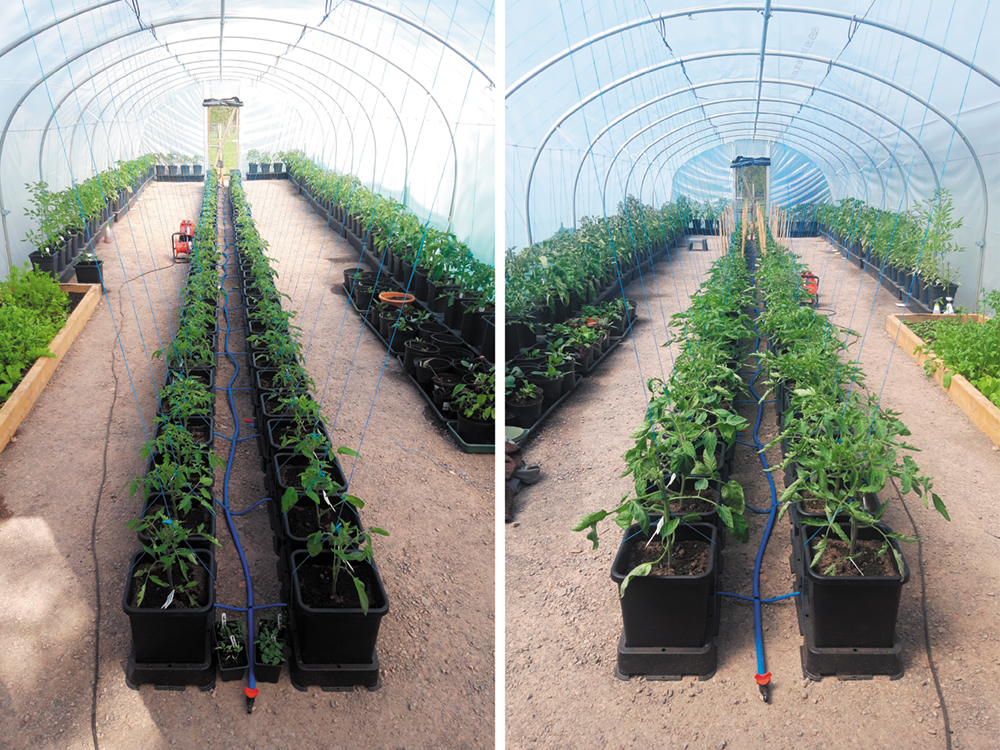
“The AutoPot system has been a game-changer for us for a number of reasons including ease of watering, feeding and the radical improvement in the health and yield of our plants. Previous growing systems have created a number of growing issues which we had to fix.” By Lance’s reckoning, other systems have either not watered responsively enough – starving the plants of irrigation and nutrients — or else have wasted vast quantities of water and feeds by supplying the plants indiscriminately, increasing workload and overheads. “Because of the way the plants receive just enough water with the AutoPot system it has been easy to manage the nutrients perfectly. The colour, yield and health of the AutoPot plants are far superior.”
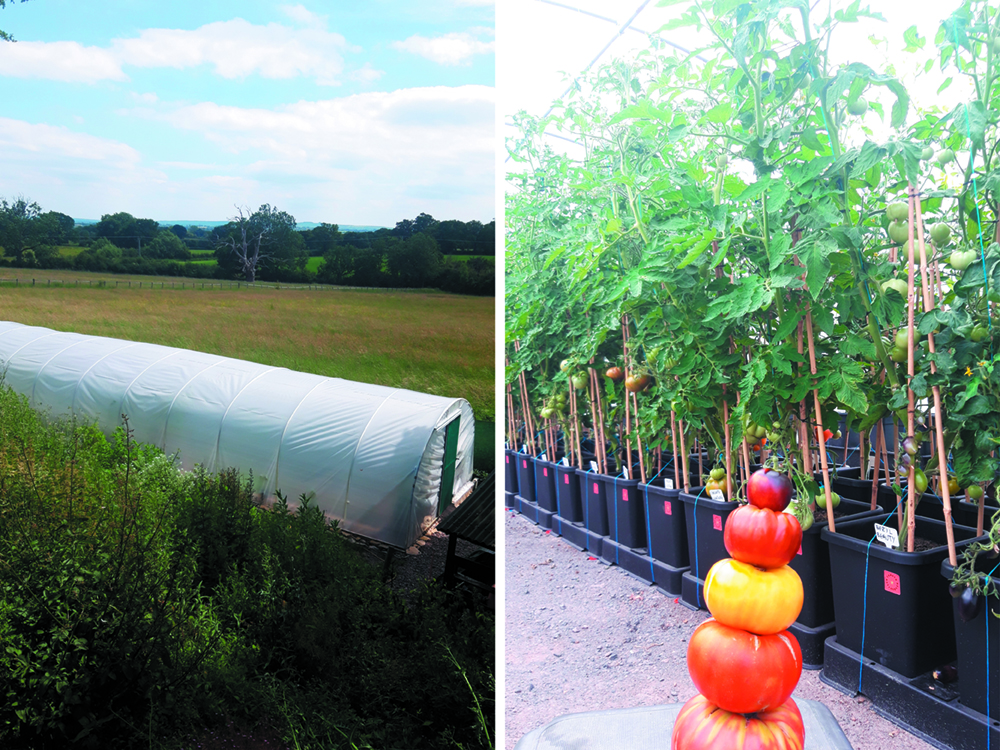
“Currently we have forty-two easy2grow modules (with eighty-four pots between them) in one tunnel and another thirty-seven of the same (with seventy-four more pots) in the other. Both are connected to 1000L FlexiTanks.” These pots run with lava rocks in the bottom of the pots for good drainage, topped up with a 70:30 mix of Michael Kings 321 compost and Perlite. Feeds and supplements, delivered via the reservoir and pipework, come in the shape of 60g per 100L of Yara Kristalon Brown fertilizer, 60g per of 100L Calcium Nitrate, and 30 g per of 100L Epsom salts.
Such set-ups may sound complex but are in fact deceptively simple — being as they are power-free and without the need for running water. On a much smaller scale a compact reservoir, a module or two, readily available substrates and nutrients, and a few of Lance’s excellent seeds are all that is required to enjoy the sweet taste of success without the need for in-earth cultivation. Lance correctly states that “any tomato variety will grow in the UK especially with when covered. All varieties can grow outside too if grown in a sheltered suntrap. If growing outside it is advisable to grow earlier ripening varieties to avoid late blight.”
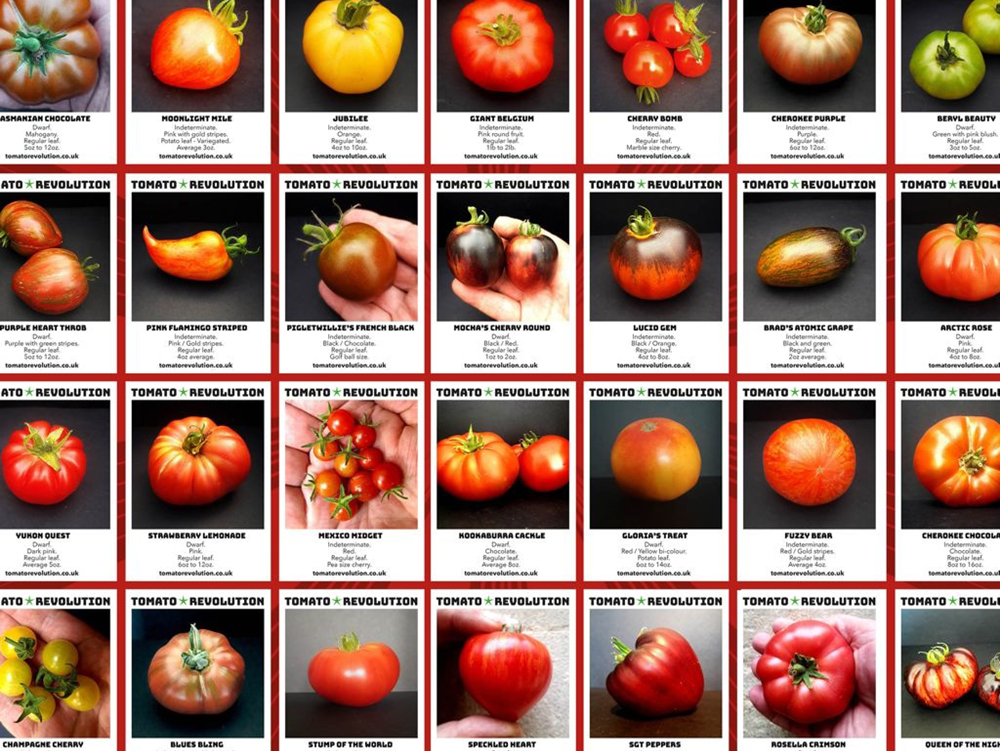
In Lance’s opinion lockdown has seen an upsurge in fruit and vegetable growing by people of all ages, with one demographic in particular looking to new techniques. “Established growers tend to stick to their tried and tested methods including the same varieties, substrate and watering methods. New and young gardeners are embracing growing technology.” This stands to reason given that the young, of all groups, will be most likely to return to the day job soonest. They’re also more likely to be seeking an accessible entry point to horticulture — one that levels any lack of knowledge of in-earth cultivation or bypasses a lack of earth in which to cultivate.
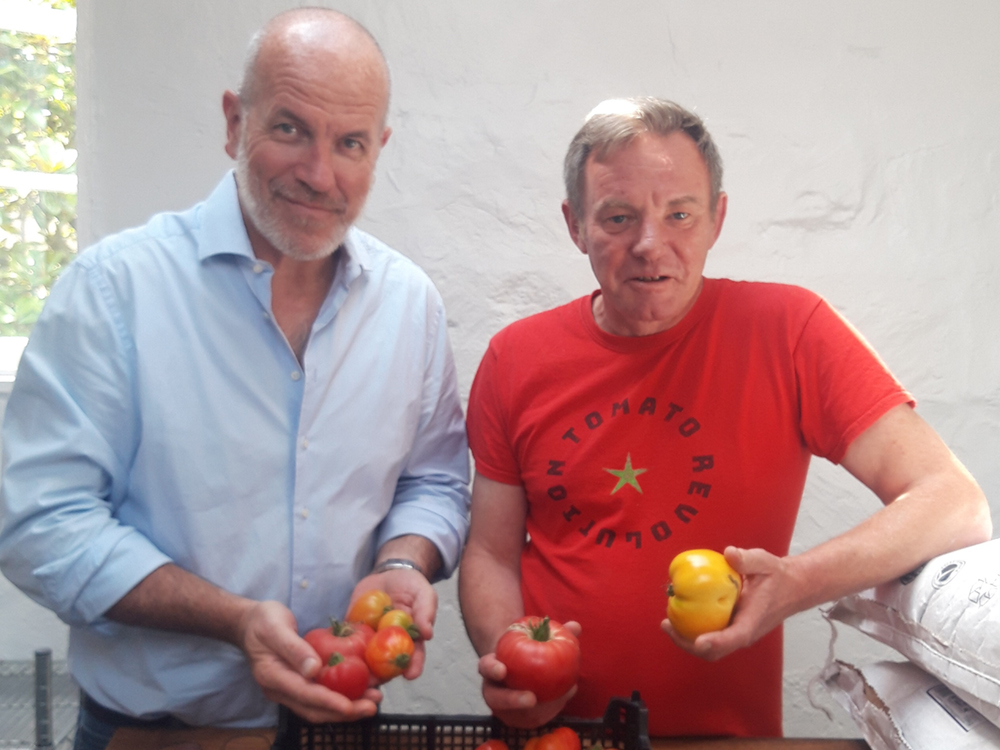
Whilst the Tomato Revolution may not be televised, its spread via social media platforms is swelling the ranks of those rallying to the cause. “Consumers want to see something fun and unique and variegated varieties fit that perfectly. They need to taste good though!”
Tomato Revolution’s Insta feed features not only tomatoes under development, available seeds, and growing tips, but also some intriguing and brilliant partnerships. Lance has worked extensively with mercurial chefs and restaurateurs like Nathan Outlaw and Richard Bertinet whose perspectives on flavour and uses have helped drive tomato development. Get a taste for tomato uproar right there @tomatorevolutionseeds , lay hands on some exquisite seeds at their seed shop, and get your hands dirty with a grow of your own — remember, in the words of Lenin; “You cannot make a Tomato Revolution in white gloves”
Home » Tomato Revolution
| Monday | 9AM-5PM |
| Tuesday | 9AM-5PM |
| Wednesday | 9AM-5PM |
| Thursday | 9AM-5PM |
| Friday | 9AM-5PM |
| Saturday | Closed |
| Sunday | Closed |
